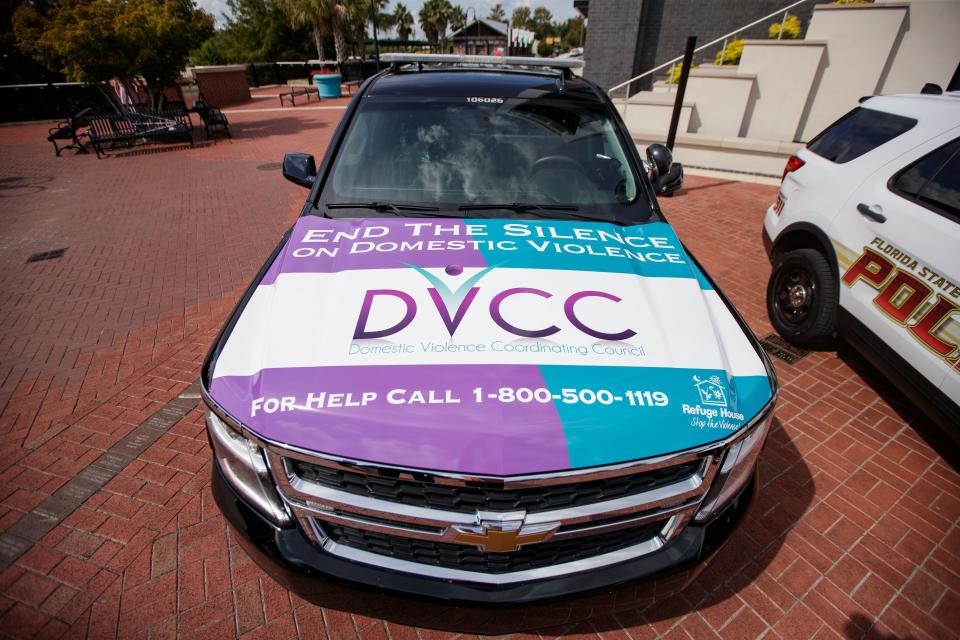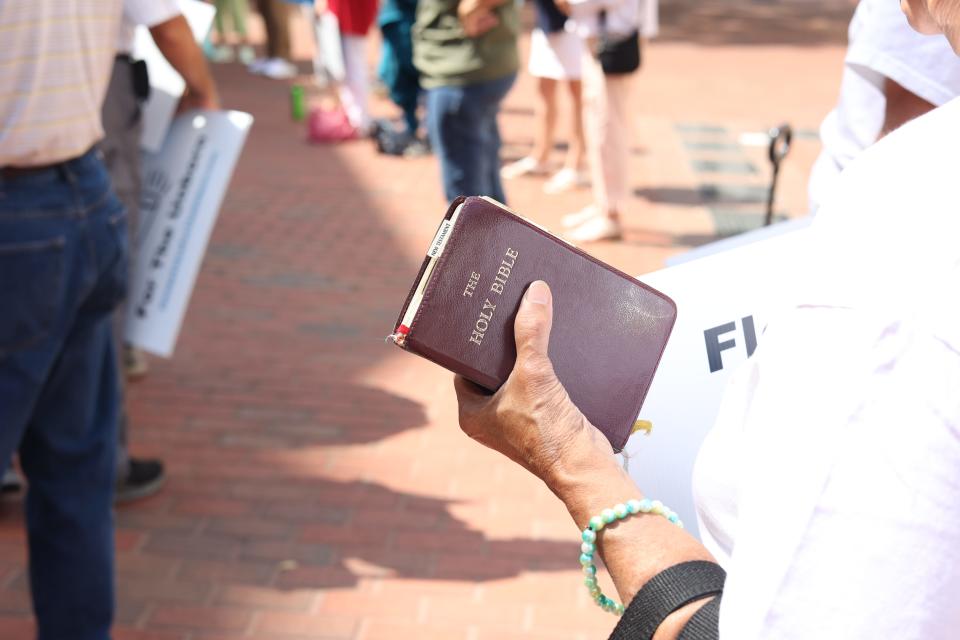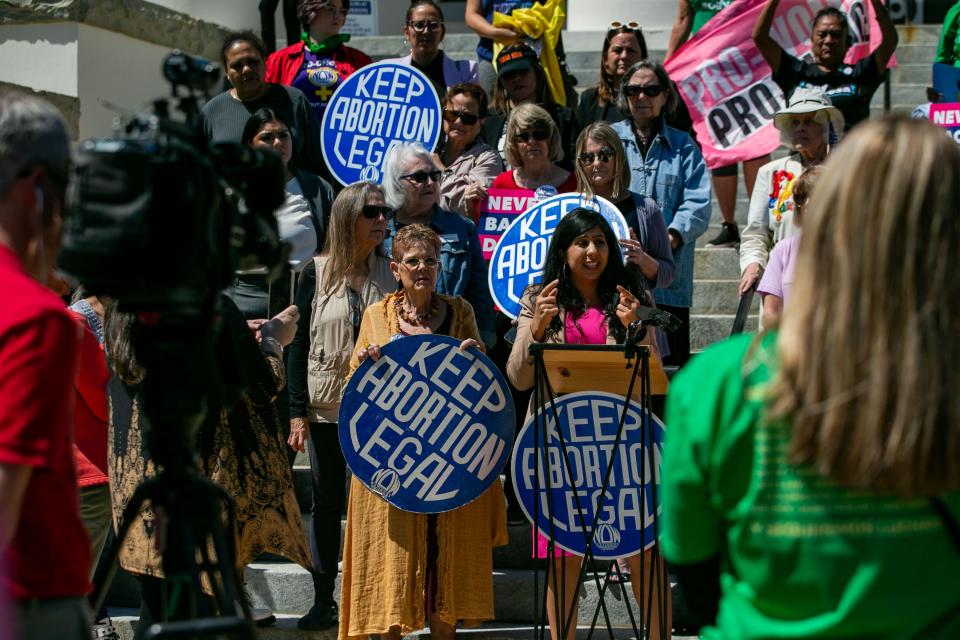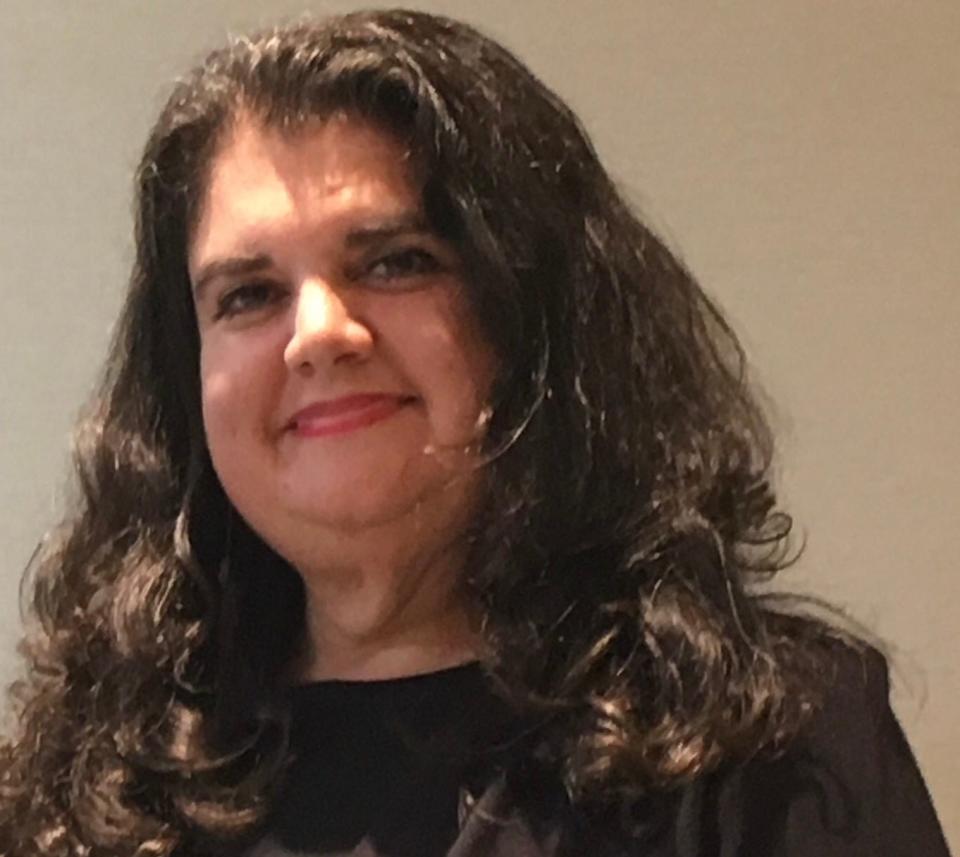The intersection of domestic violence and abortion rights: Unearthing the crisis
National Domestic Violence Awareness Month serves as a sobering reminder of the countless survivors who have endured the horrors of domestic violence. As we stand in solidarity during October, we must recognize that the battle against this extends far beyond this designated month. The voices of survivors, once muffled by fear and shame, must be amplified relentlessly. Accountability must be thrust upon the perpetrators, and the survivors must be liberated from the guilt that they carry.

Studies show one in three women and one in four men experience partner physical violence, partner sexual violence and/or partner stalking. On an average day, there are more than 20,000 phone calls placed to domestic violence hotlines nationwide. In the end, studies have shown that there is a correlation between intimate partner violence and depression.
At the Women’s Reproductive Rights Assistance Project last year approximately 15% of those we provided funding to were survivors of domestic violence. And, for the first half of this year we have over 16% who have reported they are survivors of domestic violence.
Everyone deserves healthy and loving relationships. We must spread awareness, believe survivors, challenge victim-blaming and respect boundaries.
It is important to remember that partner violence is preventable. Strategies that promote healthy relationships such as problem solving, communication, and expressing oneself are all vital to make sure that violence is out of the picture. It is important to know the signs because domestic violence can happen to anyone. It could occur early on in a relationship or years down the line.
It should be noted that domestic violence is not an isolated issue. The roots of this epidemic delve deep into the soil of patriarchy, sexism, and privilege. All these societal conditions create an environment where domestic violence can thrive and with the post-Roe decision, these conditions have intensified.

With post-Roe abortion restrictions, domestic violence experts are worried. Reproductive coercion is on the rise, and this can take different forms such as forcing sexual activity, refusing to use contraception, or the restriction in seeing a healthcare provider. An example of this is an abuser forcing their partner to carry their child because they can control their partner’s reproductive choices. In doing this, survivors have no choice but to stay with their abusive partners.

Researchers have noticed a link between abortion access and a reduced risk of being a domestic violence survivor. Abortion bans give abusers the tools to continue to manipulate their partners. Since the reversal of Roe, calls about reproductive coercion have nearly doubled. Abortion bans are giving survivors less options and abusive partners more power. With abortion bans, there is financial costs when it comes to travel to and from the clinic especially if your state banned the procedure or if a clinic is over 60 miles away and a survivor is unable to obtain birth control. Since many survivors do not have access to financial resources, this is just another way for abusers to control their partners.
Unplanned pregnancies increase the risk for violence and because of this, abortion access is crucial. With the lack of reproductive autonomy that these abortion bans enable, it makes it harder for survivors to leave their partners. Abortion access allows survivors to escape the vicious cycle of abuse and claim their own bodily autonomy. While abortion bans reinforce the power dynamics of abuser and survivor, the choice of an abortion enables the survivor to take back some of their power.
Abortion access is a lifeline for many domestic violence survivors. As a society, it is incumbent upon us to extend empathy and unwavering support to these survivors and listen to their needs. We must recognize their humanity and make space for them to heal. Abortion bans exacerbate the domestic violence issue, we must address both to make sure we live in a world where individuals do not feel pressured to make a decision they do not want to make.
We will not rest until the echoes of domestic violence are silenced, and survivors are free to write their own narratives of strength, resilience, and triumph. Domestic violence is a public health crisis, let’s treat it like one.

Sylvia Ghazarian is executive director of the Women’s Reproductive Rights Assistance Project.
JOIN THE CONVERSATION
Send letters to the editor (up to 200 words) or Your Turn columns (about 500 words) to letters@tallahassee.com. Please include your address for verification purposes only, and if you send a Your Turn, also include a photo and 1-2 line bio of yourself. You can also submit anonymous Zing!s at Tallahassee.com/Zing. Submissions are published on a space-available basis. All submissions may be edited for content, clarity and length, and may also be published by any part of the USA TODAY NETWORK.
This article originally appeared on Tallahassee Democrat: Domestic violence is a public health crisis, let’s treat it like one

